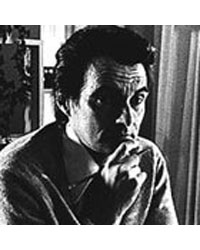Born in Granby, Québec in 1929, Roger studied composition at the Montréal Conservatory with Claude Champagne (1945) and at the École normale supérieure de musique in Paris with Nadia Boulanger (1950-55). At the Paris Conservatory he also attended Olivier Messiaen's classes in analysis. In Canada, after a study and apprenticeship period with the ethnologist Marius Barbeau, he was engaged by the Archives de folklore of Laval University as a teacher, researcher and ethnomusicologist. Matton had a solidly established reputation in Canada, the United States and Europe. In 1962 the Montréal Symphony Orchestra commissioned his piece Mouvement symphonique II to represent the country during a tour in France, Austria and the Soviet Union. In 1960, thanks to the efforts of Wilfrid Pelletier, the New York public was able to hear his work L'horoscope. Mouvement symphonique I was successfully performed in Paris in 1963, and his Te Deum received its European premiere and was recorded in Paris in 1969. From 1960 to 1978, his so-called "Mouvement symphonique" period, he produced four works that showed his interest in large forces and broad spaces. Matton's career brought him several distinctions and honours. In 1965, at an artists' gala, he was awarded the Prix de la création musicale for the works played on the CBC television series L'Heure du Concert. In 1966 he won the Prix Pierre-Mercure for the recording of his Concerto pour deux pianos et orchestre. In 1969 the Saint-Jean-Baptiste Society of Montréal awarded him its Prix de musique Calixa-Lavallée and Bene Merenti de Patria medal for his complete musical production. In 1987, Radio-Canada International issued a four-record set of his works (ACM29). In 1984, Matton became an Officer of the Order of Canada. June 2004 Original source: 1989 SOCAN, Canadian League of Composers |
|
|
|
|
Roger Matton - Composer Information
Search our Library
Featured Composers
Counterpoint Music Library Services
Copyright © 2012 All Rights Reserved
Copyright © 2012 All Rights Reserved
Created by Wavelength Media

